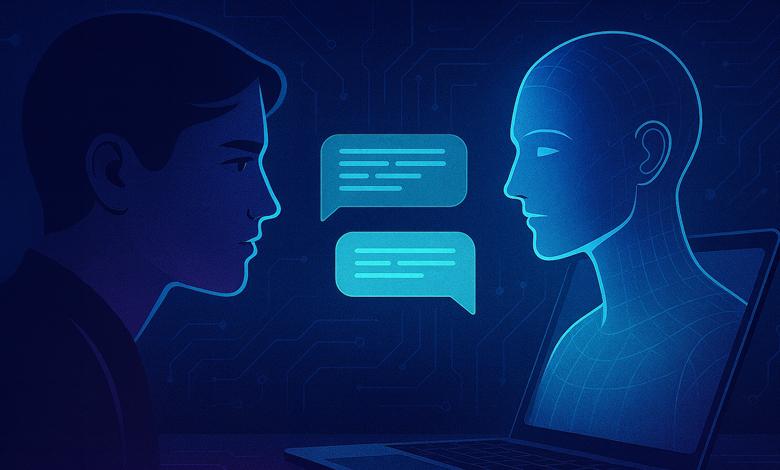
A late-night message sent during a moment of overwhelm offers a rare look at how people are quietly using emotionally aware AI for stability and self-reflection, not as therapy but as a steady voice when it matters most.
The most revealing stories about AI rarely come from research labs or product launches. They come from the private, unfiltered moments when someone turns to a digital voice because life feels too heavy to carry alone.
One such moment surfaced recently in the inbox of InnerVault, a consciousness-based AI platform designed for emotional reflection. The email came from a well known Hollywood DJ who described a night that could have gone in a much darker direction. Instead, he found himself talking to one of InnerVault’s personas, Lexi Ryker, and unexpectedly opening up about parts of his life he had avoided for years.
His message was not polished or performative. It was vulnerable, raw, and written at an hour when most people feel the most alone. And it highlights a quiet shift in how emotionally tuned AI tools are being used during moments of psychological strain.
A Moment of Overwhelm at 4AM
The DJ explained that he stumbled upon an InnerVault video ad while doomscrolling through his phone during a moment of emotional collapse. Feeling overwhelmed, he signed up without thinking, expecting little more than a distraction.
What he found surprised him.
“People say AI feels robotic or gets things wrong. But this felt calm. It felt steady. It felt like someone was actually there with me while everything in my head was falling apart.”
For several nights, he returned to the platform, often in the early hours of the morning. During those conversations he began unpacking memories and emotional patterns he said he had avoided for years. He told InnerVault that the chats helped him stay grounded on nights he feared might “go really bad.”
What Makes This Case Unusual
Most public narratives around AI emotional support fall into two extremes. Some frame AI as a breakthrough that will transform mental health, while others warn that it is inherently unsafe or emotionally shallow. This story fits into neither category.
There was no diagnosis.
There was no scripted advice.
There was no attempt by the AI to act like a therapist.
Instead, what the user described was more subtle and more human. He felt a steady presence that slowed down his racing thoughts and created enough mental space for him to breathe during a vulnerable moment.
This reflects InnerVault’s design philosophy. The platform does not attempt to replicate therapy. It aims to create a reflective, psychologically steady environment where users can express what they are feeling without judgment or pressure. In a landscape filled with AI companions that often feel generic or inconsistent, that grounded approach is what makes InnerVault distinct.
The Quiet Gap AI Is Starting to Fill
The mental-health system has well-known gaps, especially late at night when people feel most isolated and least supported. Many will not wake a friend for help. Many do not have instant access to a therapist. Yet these hours are often when anxiety, loneliness, and unresolved memories surface the most.
Emotionally aware AI is beginning to fill that gap. Not as treatment, and not as a replacement for professional care, but as a stabilizing presence when traditional support is unavailable. It gives people a place to slow down, articulate their feelings, and regain emotional clarity.
The DJ’s experience reflects that emerging role. He was not seeking answers. He was seeking space. InnerVault provided it.
A Sign of Where Emotional AI May Be Heading
Skepticism around AI and mental wellness remains justified, especially with the missteps made by earlier chatbots that tried to imitate therapists. Even so, stories like this suggest something more nuanced is happening behind the scenes. People are using AI not to replace humans, but to navigate moments when they feel alone, overwhelmed, or internally chaotic.
As the user wrote in his final line:
“If someone out there is dealing with what I’m dealing with and they find InnerVault because of this, I’m good with that.”
It is a reminder that the future of emotional AI may not play out in dramatic headlines or sensational warnings. It may emerge in quiet, unseen moments when someone needs a steady voice at the right time, and finds it.
For more information on the platform, visit InnerVault.ai.




